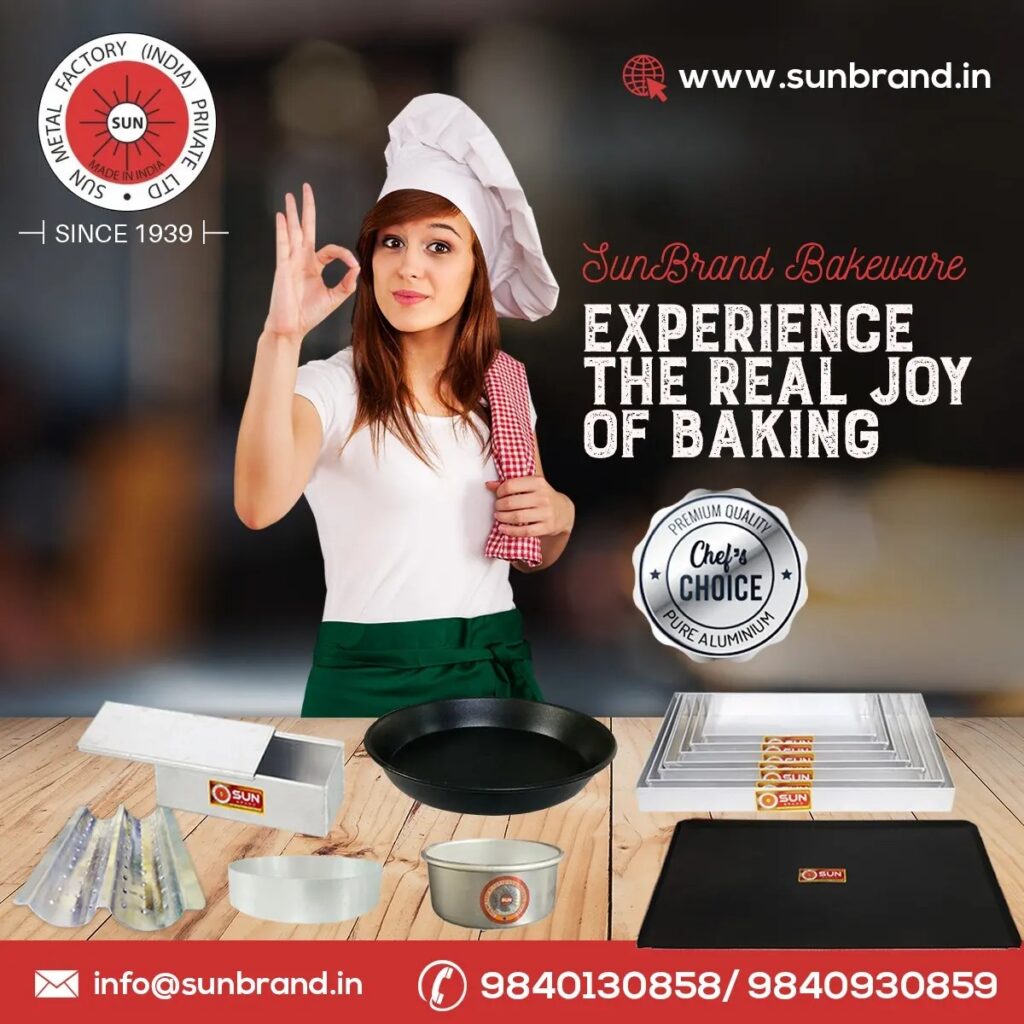In the realm of baking, selecting the right bakeware plays a pivotal role in the success of your culinary endeavors. Two popular contenders in this arena are aluminum and silicone bakeware. To make an informed decision, it’s crucial to understand the nuances between these two materials. Let’s embark on a comprehensive comparison to unveil which one aligns best with your baking needs.
1. Material Composition
Aluminum Bakeware
Aluminum bakeware is crafted from aluminum, a lightweight metal celebrated for its superb heat conductivity properties. This characteristic ensures even distribution of heat throughout the pan, promoting uniform baking and browning of food items.
Silicone Bakeware
Silicone bakeware is composed of a synthetic polymer derived from silicon, oxygen, carbon, and hydrogen. This material boasts flexibility and heat resistance, coupled with non-stick attributes that facilitate easy release of baked goods.
2. Heat Conductivity
Aluminum Bakeware
Aluminum’s innate ability to conduct heat swiftly and uniformly makes it a preferred choice among baking enthusiasts. It ensures consistent baking results, preventing hot spots and ensuring thorough cooking.
Silicone Bakeware
Silicone, while not as efficient in conducting heat as aluminum, exhibits remarkable heat retention capabilities once adequately preheated. Despite requiring longer preheating times, silicone bakeware delivers even baking results, albeit at a slightly slower pace.
3. Durability
Aluminum Bakeware
Aluminum bakeware stands out for its exceptional durability, capable of withstanding high temperatures without warping or denting. Moreover, it is less susceptible to damage from sharp utensils, enhancing its longevity.
Silicone Bakeware
Silicone bakeware, although resilient, is more prone to tearing or puncturing when subjected to sharp objects or excessive force. However, it offers resilience against breakage and is less susceptible to denting or warping.
4. Non-Stick Properties
Aluminum Bakeware
Aluminum bakeware typically requires greasing or lining with parchment paper to prevent food from sticking to its surface. While effective, this additional step is essential to ensure easy release of baked goods.
Silicone Bakeware
Silicone bakeware boasts inherent non-stick properties, eliminating the need for greasing or lining. This feature not only simplifies the baking process but also streamlines cleanup, as baked goods effortlessly slide out of the mold.
5. Versatility
Aluminum Bakeware
Aluminum bakeware is renowned for its versatility, suitable for an array of baking tasks including roasting, broiling, and baking both savory and sweet dishes. Its adaptability makes it a staple in kitchens worldwide.
Silicone Bakeware
Silicone bakeware’s versatility extends beyond the oven, as it is safe for use in the microwave, freezer, and dishwasher. From cakes and muffins to bread and candies, silicone molds cater to a myriad of culinary creations.
6. Storage
Aluminum Bakeware
Aluminum bakeware typically stacks compactly for storage convenience. However, care must be exercised to prevent scratches and dents that may compromise its performance and aesthetics.
Silicone Bakeware
Silicone bakeware’s pliable nature allows for flexible storage options, including rolling or folding for space-saving efficiency. Its resilience to damage during storage enhances its appeal to home cooks.
7. Cleaning
Aluminum Bakeware
Aluminum bakeware necessitates hand-washing with mild detergent and a sponge to preserve its appearance and functionality. Prompt cleaning prevents the buildup of residues and ensures longevity.
Silicone Bakeware
Silicone bakeware is dishwasher safe, simplifying the cleaning process and minimizing manual effort. Its non-porous surface discourages the accumulation of odors or stains, contributing to hassle-free maintenance.
8. Aesthetics
Aluminum Bakeware
Aluminum bakeware typically sports a classic metallic finish, adding a timeless appeal to kitchen aesthetics. Its understated elegance complements various kitchen decor styles, blending seamlessly into any culinary environment.
Silicone Bakeware
Silicone bakeware’s vibrant array of colors and whimsical designs inject a playful charm into baking endeavors. Whether opting for pastel hues or bold shades, silicone molds offer an opportunity to infuse personality into culinary creations.
When it comes to baking, Sunbrand aluminum bakeware stands out as the ultimate choice for several reasons. Firstly, its superior heat conductivity ensures even baking, resulting in perfectly golden treats every time. Additionally, Sunbrand aluminum bakeware offers unmatched durability, capable of withstanding high temperatures without warping or denting. Unlike silicone bakeware, Sunbrand aluminum requires minimal maintenance and is compatible with a wide range of recipes and baking techniques.
You can purchase Sunbrand aluminum bakeware from various retailers, both online and in-store. Look for it in reputable kitchenware stores, department stores, or check out online marketplaces such as Amazon, or the official Sunbrand website (https://sunbrand.in/) for a convenient shopping experience.
Conclusion
In the timeless debate of aluminum vs. silicone bakeware, each material brings its unique strengths to the table. While aluminum excels in heat conductivity and durability, silicone shines with its non-stick properties and versatility. Ultimately, the choice between the two hinges on personal preferences, baking requirements, and the desired culinary experience.

